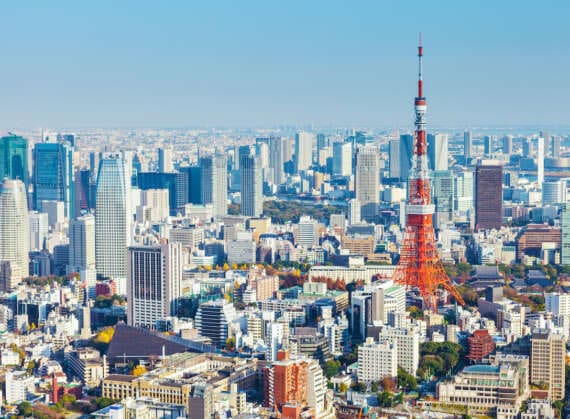
Fresh graduate or mid career? – Job hunting for foreign students with previous work experience overseas
Written for and also published on Why Japan
There’s one particular group of foreign students who are very confused when it comes to job-hunting in Japan – the many students, particularly those entering graduate school, who have worked overseas before coming to Japan.
Because the potential based hiring system in Japan presumes that applicants don’t come in with experience, there’s this big ambiguity about which such students should do. Apply as a fresh graduate? But is age going to be a negative factor? Apply as a mid-career? But … how? And do they consider students?
This is quite a big problem which much career support in Japan does not address so I am writing this article to hopefully provide some clarity about how to approach job-hunting in Japan if you already have working experience. The short answer is that you can apply for both fresh graduate shukatsu and as mid career talent when you job-hunt.
There is a much longer answer though because depending on your exact circumstances which option is more applicable can vary a lot. I will be starting by going through some of these factors.
Factor 1: Amount of experience

Clearly, the first thing that you should be looking at is how much full-time work experience you have before coming to Japan. In general, 1-2 years experience is a bit too short for you to claim enough experience to join a company as mid-career talent. Applying as a fresh graduate is the more natural choice.
There are exceptions for portfolio based jobs where you can show concrete examples of your previous work eg. designers, programmers and translators. In these cases, examples of both the quantity and quality what you have produced are far more important than how long you have worked before. Therefore, brushing up your portfolio and applying as a mid-career is valid even if you only have 1-2 years of experience.
It doesn’t mean that people with more experience can’t apply for fresh-graduate jobs though, it’s just that with more experience you may get a better job trying to leverage your previous experience. But there is one more factor here…
Factor 2: Age
Linked but not exactly the same as the above is the idea of age. This is not very politically correct but it is an open secret that beyond a certain age your chances of getting considered for a fresh-graduate job decrease.
Consider that the usual ages for a Japanese student when graduating from a degree are 22 years old for bachelors, 24 years old for masters and 27 for PhDs. There is some space for gap years, years spent studying abroad and other considerations for Japanese students but the “expected” ages based on the degrees tend to be maybe up to 3 years older these base ages. If anything foreign students probably get more slack compared to Japanese applicants regarding the “acceptable” age for when you can apply for your first job – it’s not uncommon from what I have seen for 28-29 year old masters holders to enter a Japanese company as a fresh graduate.
That being said though, excluding academic and research jobs which require a PhD, if I were to give an estimate, the age of 30 or 31 would be when companies may start immediately drop you for fresh graduate level jobs due to age. Not always but still an important factor to consider when deciding how to approach job-hunting.
Factor 3: Relevance to Japan

Another factor is that there are some fields where experience is much more easily transferred to Japan. A mechanical engineer with experience will clearly have an easier time proving that they can contribute to a company given how mechanical engineering is not culture-dependent. Even for some fields which do have cultural factors (eg. design), as long as you prove yourself to have some base skills and are adaptable to Japanese market needs especially with a portfolio, this applies too.
This contrasts with fields such as sales, marketing and HR – all of which function very differently in Japan compared to other countries. For example, people with sales experience overseas may have a hard time proving the worth of their experience in Japan except for companies specifically looking for overseas sales staff.
The above are the most obvious examples but it really is up to you to do your research on how things work in Japan. I have no idea how overseas experience in architecture is seen in Japan for example. And on this note…
Factor 4: How the industry in Japan works
It’s rather obvious but some industries in Japan are more conservative than others. For example (from what I’ve heard), the Food and Beverage industry (including linked agriculture and aquaculture industries) in Japan tend to be a bit of an old-boys club.
Why this is important is that even if your skill sets are relevant in the first place, how conservative the industry is can affect…
- How open they are to hiring mid-career talent in the first place
- How open they are to hiring foreigners as well
- And how high their Japanese requirements are even if they hire foreigners.
Therefore, to take the example above, if aquaculture is as conservative as I have heard it may be, other factors which may freeze you out of mid-career hiring with them even if you have very impressive experience in aquaculture. And this could apply to other industries – as the point above it’s really up to you to do your own research.
In which case you may have better luck applying for a fresh graduate position or maybe a mid-career position in a linked but separate industry (eg. joining a company that consults for F&B companies rather than the F&B firms themselves).
Putting it all together

So with the four factors above in mind, what are some general recommendations I would be able to give from here.
Basically, if your work experience overseas is less than 2 years, applying as a fresh graduate would seem more natural to me unless you have a portfolio which can clearly show what kinds of things you have done. You may also want to prepare yourself by gaining skills which would be congruent with what Japanese employers want from fresh graduates.
3 to 5 years is the gray area where you could aim for either method. But this is where you need to look at the factors above – especially your age and the relevance of your skill set – to see which method would be more advantageous to you. But also don’t forget your goals. If you want to transfer out of your previous field then fresh graduate job hunting is one way of doing so. If not then mid-career job-hunting may be more applicable.
Beyond 5 years you are no longer “junior talent”. Neither would you likely be satisfied with joining just the typical fresh graduates when entering a company and recruiters know this. This is where mid-career job-hunting is probably far more applicable.
Do be aware however that you may run into the situation where the skills and experience you bring is either not applicable to Japan, or is in a conservative not-foreign-friendly industry. There is no easy answer for this though and you may end up in a situation where you have to sacrifice at least one of your priorities. For example, if staying in Japan is your priority then you may have to sacrifice your want to continue working in your previous field. Or go the extra mile re-skill yourself through a coding bootcamp. Or you may have to recognize that Japan’s job market may not be your playing field and heading to a different place.
If you are looking for actual tips on how to approach mid-career hiring as a student though, do take a look at this article.
